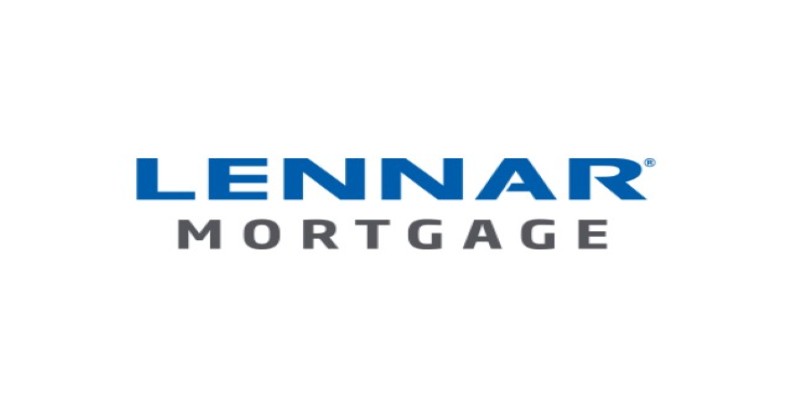Real estate is a trusted path to building wealth, offering rental income and asset appreciation. However, the upfront capital required can be a challenge. That’s where investment property loans come in. If you’re ready to start investing but unsure how to finance your first property, this guide covers how these loans work, available options, and tips to qualify as the ideal borrower.
What Is an Investment Property Loan?

An investment property loan is a type of financing specifically designed to help you purchase real estate intended to generate income. This could include homes you rent out to tenants or even property you flip and sell for a profit. Unlike loans designed for primary residences, investment property loans generally come with stricter requirements and higher interest rates. Because lenders view investment properties as riskier than homes you live in yourself.
Understanding how these loans work is essential to making sound financial decisions and maximizing your profits in real estate investing.
Differences Between Investment Property Loans and Regular Home Loans
When comparing investment property loans to traditional residential home loans, there are some key distinctions you should know about.
Higher Interest Rates
Interest rates for investment property loans tend to be higher than those for primary residences. On average, they can be 0.5% to 1.5% higher. Lenders do this to offset the perceived risk that comes with financing a property that doesn’t serve as your primary home.
Larger Down Payments
For investment properties, lenders typically require a larger down payment. While traditional home loans might allow you to put down 5% or even 3.5% (with FHA loans), investment property loans often require 15% to 25% of the purchase price.
Stricter Qualification Requirements
When taking out an investment property loan, expect to face more stringent application criteria. Lenders will scrutinize your creditworthiness, debt-to-income ratio, and cash reserves more closely compared to a normal mortgage.
Income Considerations
Unlike a primary mortgage, lenders often count the potential rental income of the property as part of your affordability calculation, which can make it easier to qualify if the property has good income-generating potential.
Types of Investment Property Loans
Depending on your investment strategy and financial situation, you could choose from several types of property loans. Here’s a breakdown of the most common ones.
1. Conventional Loans
Conventional loans are among the most popular options for financing investment properties. They’re offered by traditional banks and lenders and usually require solid credit (typically a FICO score of 620 or higher). Down payments for conventional loans on investment properties are typically 15%-25%.
Advantages:
- Widely available
- Potentially low fixed interest rates
Disadvantages:
- High credit score and cash reserve requirements
2. Hard Money Loans
Hard money loans are short-term loans provided by private lenders or investors. These loans are typically used by house flippers and carry higher interest rates and fees. However, approval is faster, and the property itself often serves as collateral instead of your creditworthiness.
Advantages:
- Quick approval process
- Less focus on credit scores
Disadvantages:
- High interest rates
- Short repayment terms
3. FHA Loans (for Small-Scale Investors)
Did you know you could use an FHA loan for investment purposes? While intended for primary residences, FHA loans allow small-scale investors to buy multi-unit properties (up to four units), provided they live in one of the units themselves.
Advantages:
- Low down payment (as low as 3.5%)
- Easier qualification standards
Disadvantages:
- Live-in requirement for at least one unit
4. Portfolio Loans
Instead of being sold on the secondary market like conventional loans, portfolio loans are kept on a lender’s books, giving the lender more flexibility in their lending terms. These loans are an ideal option for investors looking to build a portfolio of rental properties.
Advantages:
- Flexible terms
- Can finance multiple properties
Disadvantages:
- May come with higher rates
5. HELOC or Home Equity Loans
If you own property with built-up equity, consider leveraging it to secure a home equity line of credit (HELOC) or loan. This can be an effective way to finance your investment property.
Advantages:
- Lower interest rates compared to unsecured loans
- Flexibility in accessing funds when needed
Disadvantages:
- Uses your existing property as collateral, adding risk
How to Qualify for an Investment Property Loan
While securing an investment property loan can seem daunting, knowing what lenders look for will make the process smoother.
1. Build Strong Credit
A good credit score is essential. Lenders typically require a minimum score of 620, but higher scores make you eligible for better terms and lower interest rates. Aim to keep your credit score above 700 for the best options.
2. Save for a Large Down Payment
Most lenders will require at least 15% down for investment properties, but a 25% down payment can help you secure lower interest rates. Start budgeting and saving as early as possible.
3. Demonstrate Stable Income
Lenders want to see that you have reliable income to cover loan repayments. If you have potential rental income from the property, this can work in your favor.
4. Reduce Your Debt-to-Income Ratio
A lower debt-to-income (DTI) ratio signals to lenders that you’re financially stable. Aim to keep your DTI ratio below 36%.
5. Show Cash Reserves
Lenders generally want you to have at least six months’ worth of mortgage payments in cash reserves. This reassures them that you can still make payments even if emergencies arise.
Tips for Success When Applying for an Investment Property Loan

To put yourself in the best position possible as an applicant, practice these actionable tips.
- Shop for Lenders: Not all lenders offer the same terms or rates. Compare options to find the best deal.
- Get Preapproved First: Preapproval can help you understand your borrowing limits and improve seller confidence that you’re a serious buyer.
- Don’t Overleverage Yourself: Avoid taking on more debt than you can reasonably handle, even if lenders approve you for a higher loan amount.
Final Thoughts
Investment property loans are a smart way to build wealth through real estate. Though the qualification process is more demanding than standard mortgages, the rewards can be significant. Options like conventional loans for rental properties or hard money loans for house flippers cater to different strategies. By understanding loan types, qualifying criteria, and success strategies, you can streamline the borrowing process and maximize your returns in the competitive real estate market.












